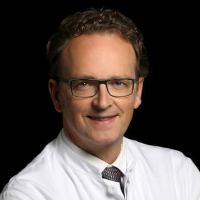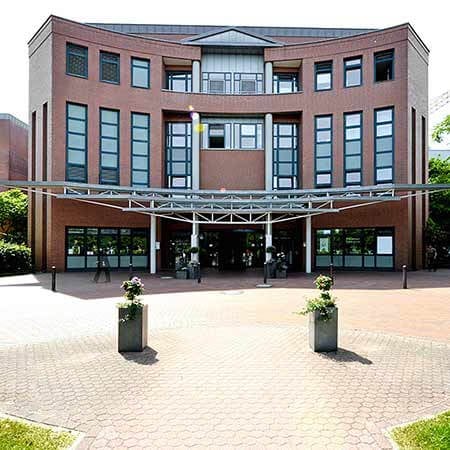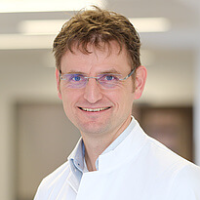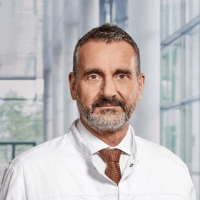Reconstruction Surgery of Atrial Septal Defect (ASD)
Treatment prices are regulated by national law of the corresponding countries, but can also include additional hospital coefficients. In order to receive the individual cost calculation, please send us the request and medical records.

Department of Cardiothoracic Surgery
According to the Focus magazine, the Department of Cardiothoracic Surgery ranks among the top German medical facilities specializing in the surgical treatment of diseases of the cardiovascular system and lung cancer! The department offers the full range of surgical services for the treatment of diseases of the cardiovascular system, respiratory tract, including heart and lung transplantation, artificial heart implantation. The therapeutic options include aortic surgery, coronary artery bypass grafting, transplantation surgery, surgical treatment of heart rhythm disorders (arrhythmias), minimally invasive surgery, surgical treatment of the heart valves, including reconstructive interventions. All operations are performed using state-of-the-art technology and in accordance with the current recommendations of professional societies.






Department of Cardiac Surgery
The Department of Cardiac Surgery provides a full range of surgical treatment in its area of specialization. Special emphasis is placed on heart valve repair and replacement surgery, coronary artery bypass grafting, thoracic aortic surgery, adult congenital and acquired heart disease surgery, pacemaker and defibrillator implantation, and artificial heart implantation for severe heart failure. Many heart operations are performed using minimally invasive techniques, which has a positive effect on the healing of the surgical wound. Minimally invasive cardiac procedures also reduce surgical risks and contribute to a rapid recovery of the patient in the postoperative period. Surgical treatment of cardiac pathologies is performed in advanced operating rooms equipped with the latest technology. The cardiac surgeons of the department successfully perform routine and complex surgical procedures, saving the lives of thousands of patients. The specialists work in accordance with current clinical protocols and follow the recommendations of the German Society for Thoracic and Cardiovascular Surgery (DGTHG).


Department of Cardiothoracic Surgery and Vascular Surgery
The Department of Cardiothoracic Surgery and Vascular Surgery provides effective surgical treatment for diseases of the heart, respiratory system, and blood vessels. The team of cardiac surgeons operates on patients with heart valve pathologies, coronary heart disease, heart failure, and heart rhythm disturbances. In the field of thoracic surgery, the key focus is on the surgical removal of lung tumors and lung metastases. The specialists in this area also perform surgery to repair chest wall deformities. In the field of vascular surgery, interventions for abdominal and thoracic aortic aneurysms are most often performed here. The department's vascular surgeons are also exceptionally competent in the treatment of peripheral occlusive arterial disease. A great advantage for the department's patients is that almost all surgical interventions are performed using minimally invasive techniques, so there is no need for a long postoperative recovery. The department's operating rooms are equipped with state-of-the-art technology. This allows for effective and safe treatment. The priority is always personalized medical care for patients.






An atrial septal defect (ASD) is an abnormal opening through which the two atria communicate. The presence of a large hole may lead to the discharge of blood from left to right, as a result of which pulmonary blood vessels are overloaded and pulmonary hypertension or heart failure may develop. In recent years, the treatment of atrial septal defects has been predominantly endovascular, as it is safer for health and does not require a long recovery. Some patients, however, still require open-heart surgery. You can undergo your treatment abroad and have it be effective and safe for your health. You can find out the cost of treatment and compare prices in different hospitals using the Booking Health service.
Content
- Who may need treatment for an atrial septal defect (ASD)?
- Who may be a candidate for open surgery to treat an atrial septal defect (ASD)?
- How is surgery for an atrial septal defect (ASD) performed?
- Where to undergo your atrial septal defect treatment?
Who may need treatment for an atrial septal defect (ASD)?
As a rule, atrial septal defects (ASD) up to 5 mm in size are not dangerous to health and close themselves. These defects do not require any treatment.
Atrial septal defects (ASD) larger than 1 cm require surgery or an endovascular procedure. These pose a threat to health.
The defects between 5 and 10 mm in size are not treated immediately, but doctors start by monitoring. A patient is examined every 2-3 years to assess the dynamics (the defect decreases or increases) and to detect any possible complications. If the heart disease develops as a result of a septal defect, a stroke occurs, or other health consequences occur, the patient requires treatment of the defect.
Who may be a candidate for open surgery to treat an atrial septal defect (ASD)?
The classic option for treating an atrial septal defect (ASD) is open surgery. Such interventions have been performed since 1953, when the world's first operation was done using a heart-lung machine. These were considered the main ones until the end of the 20th century.
Endovascular techniques are more commonly used today because they are safer for the patient's health. An occluder is implanted through an incision in the inguinal region into the septum of the heart. The occluder is a device that is fixed to the remaining part of the septum and closes the defect. These procedures, however, are not suitable for all patients. Defects of the venous and coronary sinuses, as well as primary (low) defects that are localized at the level of the fibrous ring of the atrioventricular valves, are subject to surgical elimination. In addition, it is difficult to close heart defects larger than 2 cm with an occluder. The endovascular technique is also not used if the atrial septal defect (ASD) is combined with other heart defects or acquired diseases that require surgical repair.
How is surgery for an atrial septal defect (ASD) performed?
In the classic version, the operation is performed on the open heart. Doctors usually make an incision in the center of the sternum. Less often, a clamshell thoracotomy or a wide right-sided anterolateral thoracotomy (an incision on the lateral surface of the chest) may be used as a surgical approach. In any case, a person is connected to a heart-lung machine, the right atrium is dissected, and the reconstruction of the defect in the septum of the heart is performed by patching.
In recent years, robot-assisted interventions that are less traumatic and safer for health have been performed abroad. They are endoscopic and done through three punctures on the lateral surface of the chest.
Robot-assisted surgery in the treatment of heart disease has been used in medicine since 1998. It is used primarily for interventions on the mitral valve and for coronary artery bypass grafting. However, specialized Cardiac Surgery Hospitals abroad also use the robot-assisted surgical system to treat other diseases, including an atrial septal defect (ASD). Robot-assisted heart surgery ensures:
- a minimal tissue trauma rate;
- a facilitated postoperative period;
- a reduced rehabilitation period;
- a reduced risk of complications;
- an improved aesthetic result.
Where to undergo your atrial septal defect treatment?
You are welcome to contact one of the hospitals abroad specializing in cardiac surgery to undergo your treatment with reliable results and minimal health risks. You can find out the cost of treatment and choose a medical care program at a favorable price on the Booking Health website. Our specialists will select for you the best Department of Cardiac Surgery, which specializes in the reconstruction of an atrial septal defect and achieves excellent results.
When you make an appointment through Booking Health, the cost of treatment abroad will be lower for you than when you contact the medical center directly. Prices for medical services are reduced due to the absence of additional taxes for foreign patients. The initial cost of treatment abroad will not increase after the start of your medical care program, as you will receive insurance that protects you against unexpected medical expenses.
The Booking Health specialists will take care of all the arrangements for your trip for medical treatment abroad. We will contact the Cardiac Surgery Center, make an appointment for your preferred dates, and translate your medical records. We will also book the nearest hotel to the hospital, meet you at the airport, and take you to the hospital by car. We will solve all organizational issues, and you can fully focus on restoring your health.
Authors:
The article was edited by medical experts, board-certified doctors Dr. Nadezhda Ivanisova and Dr. Vadim Zhiliuk. For the treatment of the conditions referred to in the article, you must consult a doctor; the information in the article is not intended for self-medication!
Sources:

